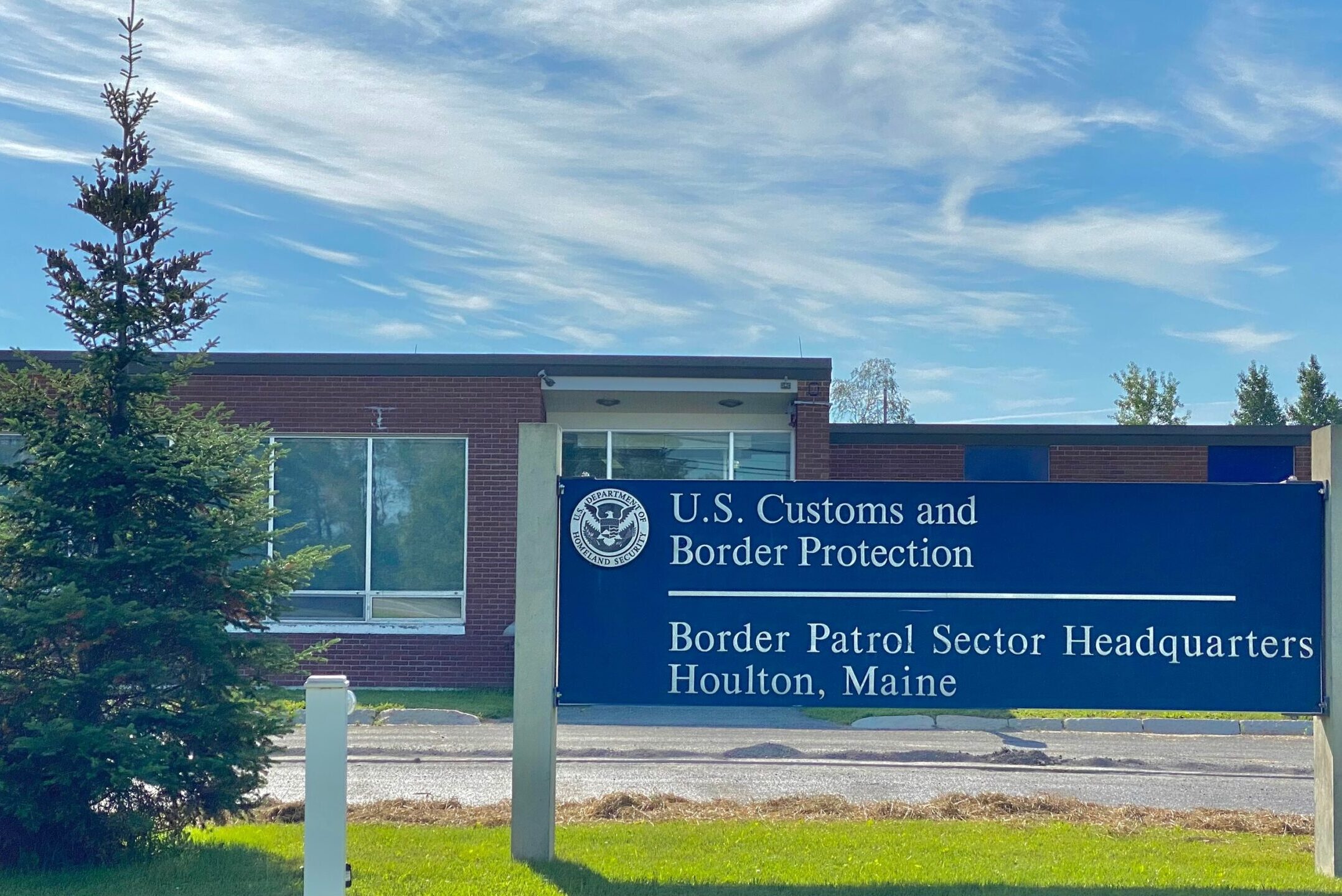
HOULTON, Maine — An Old Town passenger bus line remains silent to a Maine citizens rights group’s request to stop allowing border patrol agents to board buses and search for illegal immigrants or drugs.
U.S. Customs and Border Protection officers violated a Presque Isle couple’s constitutional rights last Thanksgiving when agents detained them at a Houlton rest stop, according to the Maine Chapter of the American Civil Liberties Union. The couple was on a trip home after visiting family in New Hampshire for the holiday.
When Jade Hopkins and Robert Kipp chose not to answer repeated border patrol agents’ questions regarding their immigration status, they were handcuffed, forced off the Cyr Bus Lines bus they were riding and their luggage was removed.
This was not the first time they were asked questions on the Cyr bus by border patrol agents and the couple had agreed the next time it happened they were going to exercise their right to remain silent, according to American Civil Liberties Union legal fellow Anahita Sotoohi.
The entire state of Maine is under the U.S. Customs and Border Protection 100 miles from a border zone, giving agents more authority. But the Fourth Amendment protections still apply and under the law, border patrol agents need to have an obvious reason to detain someone or a warrant, according to the American Civil Liberties Union.
“They were exercising their Fourth Amendment right. They felt like we do not live in a police state,” Sotoohi said on Wednesday. “They had a sense that if you don’t exercise your rights you can end up losing them.”
Citizens do not have to answer questions posed by border patrol agents, according to the Fourth Amendment of the U.S. Constitution. Non-citizens with permission to be in the country, on a visa for example, are required to respond.
A citizen’s silence does not meet probable cause or reasonable suspicion criteria, which means Customs and Border Protection agents can’t detain someone just because they chose not to answer, Sotoohi said.
Customs and Border Protection spokesperson Ryan Brissette said the department’s agents conduct various enforcement activities away from the border as a layered approach to national security.
The Immigration and Nationality Act authorizes agents to board and search vehicles, Brissette said.
The act outlines that authority in subsection 1357 “Powers of immigration officers and employees.”
Nonetheless, in the case of Cyr Bus Lines, because it is private, agents cannot board their buses unless Cyr drivers allow them to enter, Sotoohi said.
Knowing they would be stranded in Houlton, the couple relented and told agents they were citizens. The agents asked for documentation and they were released after showing their driver’s licenses, she said.
“Border Patrol checkpoints do not give border patrol agents carte blanche to automatically search persons and their vehicles,” according to a Customs and Border Protection July statement. “To conduct a legal search under the Fourth Amendment, the agents must develop particularly probable cause to conduct a lawful search. Probable cause can be developed from agent observations, records checks, non-intrusive canine sniffs and other established means. Motorists may consent to a search but are not required to do so.”
The Presque Isle couple contacted the American Civil Liberties Union because they believed their rights had been violated. And they have joined the ACLU in calling on Cyr Bus Lines to stop giving border patrol agents permission to enter their buses, similar to Greyhound and Concord Coach Lines bans.
The ACLU wrote to Cyr Bus Lines twice in June, asking them to deny border agents access, but they have not yet responded, Sotoohi said.
In the letters to Cyr, the ACLU explains that the bus company also has Fourth Amendment rights, and because it is a private company, it does not have to allow the agents onboard to conduct searches.
There has been an escalation in Customs and Border Protection abusive practices toward passengers on Cyr buses with agents regularly boarding the buses at the Houlton rest stop and interrogating passengers about their immigration status, the ACLU letter states.
Additionally, agents are using drug-sniffing dogs to search all passengers’ luggage.
“We also understand that Cyr bus drivers are instructing passengers that these dogs are drug sniffing dogs and that CBP will confiscate any drugs (including cannabis) that they might find,” said Sotoohi.
The ACLU is asking Cyr to require Customs and Border Protection agents to have a warrant to search the bus for illegal immigrants and drugs.
Calls to Cyr Bus Lines owners were unsuccessful. The company officials are on vacation until next week.
“It’s traumatic to be handcuffed and interrogated, even when you know you’ve done nothing wrong,” the couple said in an opinion piece published in the Bangor Daily News. “It’s terrifying that armed government agents can deny your rights when they personally choose, and we saw first-hand how those entrusted to enforce the law could slip into abuse.”







